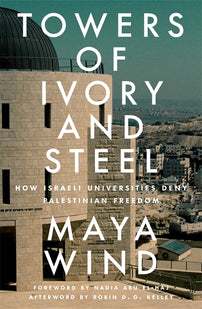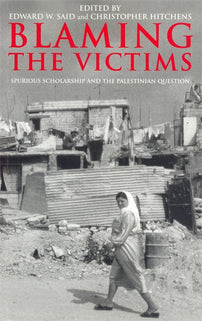Writers, the time to speak out for Palestine is now!
Sarah Bernstein and Yara Rodrigues Fowler encourage UK-based writers to join the Society of Authors and vote in favour of a motion calling for a permanent ceasefire in Gaza.

Although the act of writing tends to be solitary, it remains at the same time profoundly collaborative. Our work is enriched by and dependent on the thoughts and words of others who wrote before and write alongside us, and developing this work into something like a book requires the cooperation of many other people—friends, editors, typesetters, proofreaders. We might describe this position as one of being ‘alone together’, to borrow Deborah Nelson’s term for mid-century writers like Mary McCarthy and Susan Sontag.
The idea that the writer’s work is undertaken in solitude is perhaps what leads to the persistent misunderstanding of art as separate from political life, of politics as an ‘interruption’ of the pure aesthetic life of art. The conception of the writer as working ‘alone together’ insists on the writer’s – and the work’s – enmeshment in the world. Whatever we might think about literature’s capacity to act in the world, we do know this: literature’s material is the world. It is not separate from it.
Thus it was with not a little confusion that we received news that the Management Committee of the Society of Authors, the largest trade union for writers in the UK, updated their policy and practice document in January 2024 to state that commenting on ‘general political issues’ is outside of their remit. This wasn’t their rationale in 2022 when, three days after the Russian invasion, the SoA - rightly - declared its solidarity with “all Ukrainian people, and in particular with Ukrainian writers, illustrators, translators, journalists, and others whose lives and livelihoods are so entwined with the right to think, speak, write and create freely”. The union’s magazine, The Author, also published an article on the essential role of writers and culture in conflict-affected Ukraine. ‘General political issues’ were also not a problem in 2020 when the union - again, rightly - published a statement supporting the #BlackLivesMatter movement.
This new policy, and its timing following 7 October, shows a double standard when it comes to Palestine. It’s also at odds with the role of a trade union, which is to represent its members, including on ‘general political issues’. That’s why so many other unions in the UK, including the University and College Union (UCU) and the National Union of Journalists (NUJ), which represents publishing staff, have issued statements in support of a ceasefire.
Since October 2023, over 30,000 Palestinians have been killed by Israel and the World Health Organisation warns that starvation could kill many more. As writers and workers, this has been a time of disappointment and frustration, as most big publishers have refused to condemn even the killing of authors and destruction of libraries in Palestine. By contrast, as the many open letters, fundraisers and the recent vigil outside the London Book Fair show, writers want a ceasefire in Gaza and freedom for Palestine.
In late 2023, the two of us attended a Zoom meeting of Fossil Free Books, a collective of workers in the books industry organising for climate justice and a free Palestine. The group came together to draft two resolutions to take to the Society of Authors: one advocating for a permanent ceasefire and solidarity with Palestinian media workers, journalists and writers; the other urging financial institutions partnered with the literary sector to divest from the fossil fuel industry. Both resolutions have been endorsed by a range of organisations, including Greenpeace UK, Book Workers for a Free Palestine, The Palestine Festival of Literature, Friends of the Earth Scotland and the Vashti Media Editorial Collective.
Together with other members of the SoA, we signed a request for an Extraordinary General Meeting to vote on the two resolutions. This request was successful, and an EGM will be held on the 2nd May. SoA’s Management Committee has endorsed our resolution on fossil fuel divestment. However, earlier this month, the Management Committee sent a statement to its 13,000 members, recommending they vote against the Palestine resolution for the reasons cited above. That only one of these issues is deemed ‘political’ is telling, reflective of the ways institutions, even those ostensibly committed to freedom of speech, nevertheless work to delimit what kind of speech is acceptable.
We’re writing today as members of Fossil Free Books to urge all eligible writers, translators and illustrators to join the Society of Authors, register for the EGM and vote on 2 May. Without local or workplace branches, where we can pass motions as members do in most other unions, this is our chance to demand our union represent us.
What is the role of the writer of literature today? Literature’s power lies in its potential to intervene in the grammar of looking, to open up new possibilities for language, for ways of reading, and for ways of seeing the world. The work of the writer is to unfold these new horizons of possibility, in writing as in life. Now is the time to work alone together.
For more information, check out the FAQs page here.
[book-strip index="1"]


